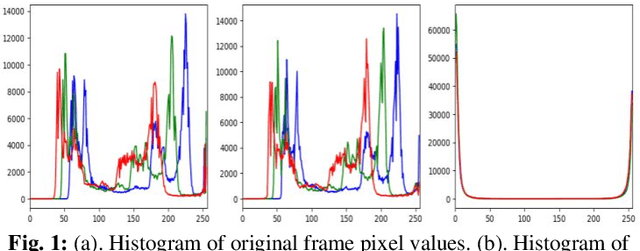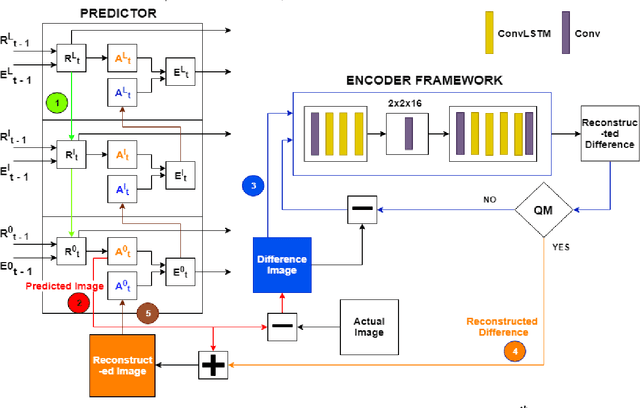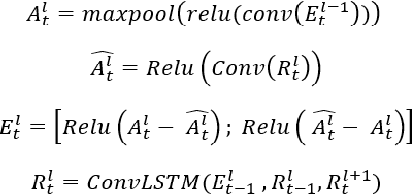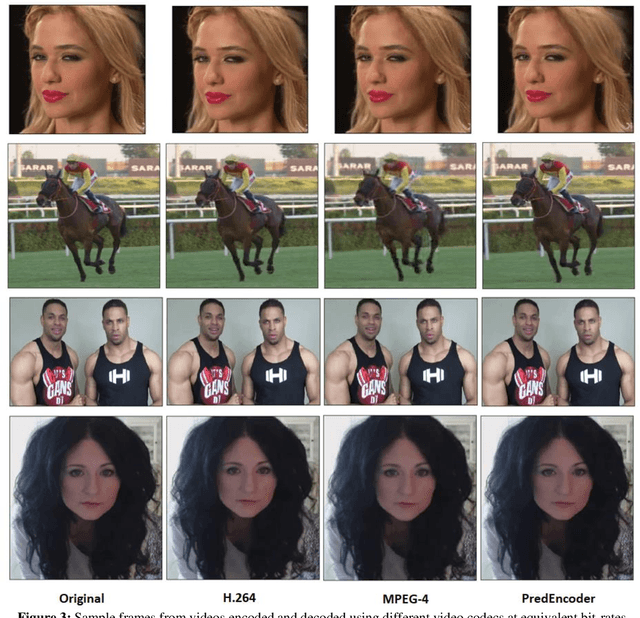Variable Rate Video Compression using a Hybrid Recurrent Convolutional Learning Framework
Paper and Code
Apr 08, 2020



In recent years, neural network-based image compression techniques have been able to outperform traditional codecs and have opened the gates for the development of learning-based video codecs. However, to take advantage of the high temporal correlation in videos, more sophisticated architectures need to be employed. This paper presents PredEncoder, a hybrid video compression framework based on the concept of predictive auto-encoding that models the temporal correlations between consecutive video frames using a prediction network which is then combined with a progressive encoder network to exploit the spatial redundancies. A variable-rate block encoding scheme has been proposed in the paper that leads to remarkably high quality to bit-rate ratios. By joint training and fine-tuning of this hybrid architecture, PredEncoder has been able to gain significant improvement over the MPEG-4 codec and has achieved bit-rate savings over the H.264 codec in the low to medium bit-rate range for HD videos and comparable results over most bit-rates for non-HD videos. This paper serves to demonstrate how neural architectures can be leveraged to perform at par with the highly optimized traditional methodologies in the video compression domain.
 Add to Chrome
Add to Chrome Add to Firefox
Add to Firefox Add to Edge
Add to Edge